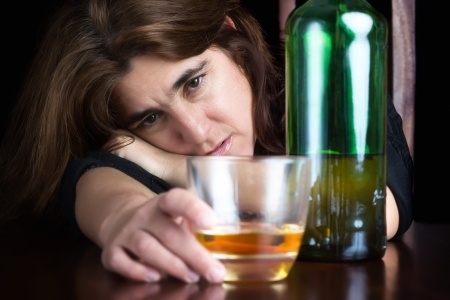Although most of the focus for binge drinking and alcohol addiction is centered on high school students, senior citizens comprise a surprisingly large slice of the addiction pie chart. Multiple news stories and media outlets have begun reporting on this phenomenon, uncovering that seniors are becoming increasingly likely to abuse alcohol and prescription medication.
Individuals who are in their 60s and 70s today were young adults during the time when drug use was entering mainstream America. As they begin to grow older and suffer all of the difficulties associated with old age, it looks like many are turning to the bottle as their newfound friend and coping mechanism. Although people of all ages experience hardships and struggles, those experienced by the elderly are unique and worth taking a look at. The loss of friends and loved ones, isolation and separation from family and society, decreasing health and increasing ailments- these factors and more are pushing the elderly towards their next drink. Whether they’re using alcohol as an alternative to prescription painkillers or as a remedy for grief and loneliness, their rates of alcohol abuse are steadily on the rise.

Difference in Medical Treatment
When asked about his experience, a treatment professional commented by noting the difference in medical treatment between the old and the young. If a middle-aged man approached a doctor seeking treatment for back pain, the doctor would likely recommend physical therapy. But if he was in his early 70s, that same doctor would probably recommend. A strong pain killer. Opiate medications like these have a high potential for abuse, partially because the user to builds a tolerance, which forces them to increase their dose up to potentially fatal levels.
Facts and Statistics
The Substance Abuse and Mental Health Services Administration (SAMHSA) conducted a study in 2011 comparing the rates of substance abuse in those over 50 with their rates in 2002. Their findings indicated that there was a significant increase in substance abuse, growing from 2.7% in 2002 to 6.3% in 2011. Among those substances, alcohol was reported as the most frequently used. Following behind alcohol were marijuana and prescription painkillers
Similarly, the National Council on Alcohol and Drug Dependence has reported that the levels of elderly patients admitted into substance abuse treatment have increased dramatically over recent years. Admissions have increased by 70% between 2000 and 2008, even though the amount of individuals over 50 in the United States only increased by 21%.
What Can We Do?
Treating seniors differently than young people in terms of prescribing medication is not the solution. Instead of special consideration, California alcohol addiction doctors should instead look at non-narcotic solutions to their pain, such as diet and exercise.
If you have a parent taking prescription medication, keep an eye on what they’re taking and how much. Take a peek around their cupboards and see if they have any alcohol, and check again the next time you’re there to see how much they’ve had in the interval.
We also recommend substance abuse treatment programs. Northbound Treatment Services offers a wide range of inpatient programs for alcohol abuse and addiction, and doesn’t discriminate when it comes to the age of our clients. We feel strongly that no matter how old you are or what you’ve experienced, there is always the possibility of a happy life free from addiction. If you’re interested in taking a look at our treatment programs, please click on the following link, or contact us today at (866) 536-4356.

